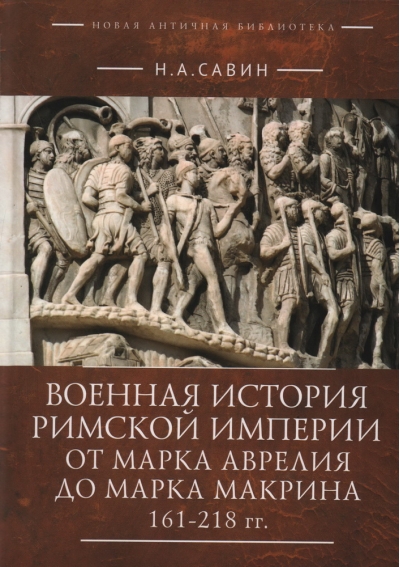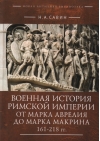Military History of the Roman Empire from Marcus Aurelius to Marcus Macrinus. 161-218.
39.99 €
Out of stock
The subject of this book is the history
of the Roman Empire during the Antonine and Severan dynasties from the beginning of the reign of
of the philosopher emperor Marcus Aurelius to the death of the usurper emperor Marcus
Opellius Macrinus, with emphasis on its military aspect, hitherto poorly known to the reader interested in history.
to the reader interested in history. Why have we chosen this particular period? In our opinion.
in our opinion, it was the time of Rome's last serious attempt to maintain its
unquestioned dominance of the oikoumene and, at the same time.
attempt to preserve the ancient civilization of the Mediterranean as a whole.
as a cultural and political phenomenon. Until then, Rome had had no such need.
because there was no doubt about its dominance and civilizational progress.
civilizational progress. Now such doubts had arisen. Rome
had been subjected to military attacks on a massive scale, which it had struggled to withstand.
the cultural level of the Empire began to decline, though, at first, for its people,
not very noticeably. At the same time, a crisis of worldview, primarily religious.
primarily religious. The ancient religions that had previously contributed to the development of society
society, now attracted less and less respect and sincere faith. In the ancient
gods, with their purely human characters, were believed in by fewer and fewer people.
Consequently, the moral principles and culture of society
and the culture of society. The ruling circles of the empire, starting with Marcus Aurelius and his
and his circle of associates, tried to stop the barbarian onslaught with military force,
to preserve the principles of ancient valor, to breathe new life into a dying faith,
morals and customs, but their efforts were in vain. The demoralization
of the population, the moral failures of the emperors, the decay of the Roman guard and army,
the powerlessness and conformity of the Senate, only served to emphasize this. But the Romans were, after all.
a warrior people, so the Empire's purely military and organizational efforts had the best result
the best result in trying to stop the decline. It's these efforts that we want
to show in this work.
of the Roman Empire during the Antonine and Severan dynasties from the beginning of the reign of
of the philosopher emperor Marcus Aurelius to the death of the usurper emperor Marcus
Opellius Macrinus, with emphasis on its military aspect, hitherto poorly known to the reader interested in history.
to the reader interested in history. Why have we chosen this particular period? In our opinion.
in our opinion, it was the time of Rome's last serious attempt to maintain its
unquestioned dominance of the oikoumene and, at the same time.
attempt to preserve the ancient civilization of the Mediterranean as a whole.
as a cultural and political phenomenon. Until then, Rome had had no such need.
because there was no doubt about its dominance and civilizational progress.
civilizational progress. Now such doubts had arisen. Rome
had been subjected to military attacks on a massive scale, which it had struggled to withstand.
the cultural level of the Empire began to decline, though, at first, for its people,
not very noticeably. At the same time, a crisis of worldview, primarily religious.
primarily religious. The ancient religions that had previously contributed to the development of society
society, now attracted less and less respect and sincere faith. In the ancient
gods, with their purely human characters, were believed in by fewer and fewer people.
Consequently, the moral principles and culture of society
and the culture of society. The ruling circles of the empire, starting with Marcus Aurelius and his
and his circle of associates, tried to stop the barbarian onslaught with military force,
to preserve the principles of ancient valor, to breathe new life into a dying faith,
morals and customs, but their efforts were in vain. The demoralization
of the population, the moral failures of the emperors, the decay of the Roman guard and army,
the powerlessness and conformity of the Senate, only served to emphasize this. But the Romans were, after all.
a warrior people, so the Empire's purely military and organizational efforts had the best result
the best result in trying to stop the decline. It's these efforts that we want
to show in this work.
See also:
- All books by the publisher
- All books by the author
- All books in the series The New Antique Library. Ancient History






